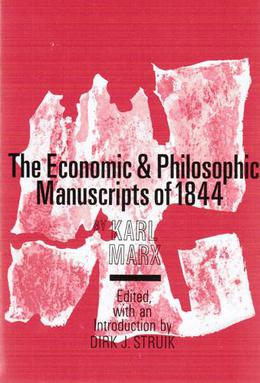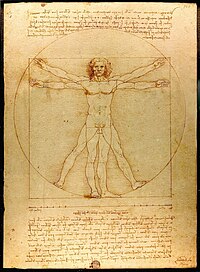The justification of the state refers to the source of legitimate authority for the state or government. Typically, such a justification explains why the state should exist, and to some degree scopes the role of government – what a legitimate state should or should not be able to do.
World government is the concept of a single political authority with jurisdiction over all of Earth and humanity. It is conceived in a variety of forms, from tyrannical to democratic, which reflects its wide array of proponents and detractors.
Democratic globalization is a social movement towards an institutional system of global democracy. One of its proponents is the British political thinker David Held. In the last decade, Held published a dozen books regarding the spread of democracy from territorially defined nation states to a system of global governance that encapsulates the entire world. For some, democratic mundialisation is a variant of democratic globalisation stressing the need for the direct election of world leaders and members of global institutions by citizens worldwide; for others, it is just another name for democratic globalisation.
A supranational union is a type of international organization and political union that is empowered to directly exercise some of the powers and functions otherwise reserved to states. A supranational organization involves a greater transfer of or limitation of state sovereignty than other kinds of international organizations.

Progress is movement towards a perceived refined, improved, or otherwise desired state. It is central to the philosophy of progressivism, which interprets progress as the set of advancements in technology, science, and social organization efficiency – the latter being generally achieved through direct societal action, as in social enterprise or through activism, but being also attainable through natural sociocultural evolution – that progressivism holds all human societies should strive towards.

The United Nations Parliamentary Assembly (UNPA) is a proposed parliamentary body within the United Nations (UN) system.

The Campaign for a United Nations Parliamentary Assembly (CUNPA) is a global network of more than 300 non-governmental organizations (NGOs) and 1,500 current and former parliamentarians from around 150 countries devoted to establishing a United Nations Parliamentary Assembly.
An international parliament or world parliament or supranational legislature is a theoretical or hypothetical concept that envisions a legislative body with representatives from different countries or sovereign entities, similar to a parliament but at international level for global governance, thus establishing a world government. It's a hybrid system of intergovernmentalism and supranationalism which could be based on a predecessor inter-parliamentary institution or a newly established organization-level legislature.
19th-century German philosopher Karl Marx, the founder and primary theorist of Marxism, viewed religion as "the soul of soulless conditions" or the "opium of the people". According to Marx, religion in this world of exploitation is an expression of distress and at the same time it is also a protest against the real distress. In other words, religion continues to survive because of oppressive social conditions. When this oppressive and exploitative condition is destroyed, religion will become unnecessary. At the same time, Marx saw religion as a form of protest by the working classes against their poor economic conditions and their alienation. Denys Turner, a scholar of Marx and historical theology, classified Marx's views as adhering to Post-Theism, a philosophical position that regards worshipping deities as an eventually obsolete, but temporarily necessary, stage in humanity's historical spiritual development.
Marxism is a method of socioeconomic analysis that originates in the works of 19th century German philosophers Karl Marx and Friedrich Engels. Marxism analyzes and critiques the development of class society and especially of capitalism as well as the role of class struggles in systemic, economic, social and political change. It frames capitalism through a paradigm of exploitation and analyzes class relations and social conflict using a materialist interpretation of historical development – materialist in the sense that the politics and ideas of an epoch are determined by the way in which material production is carried on.

Planetary consciousness is the idea that human beings are members of a planetary society of Earth as much as they are members of their nations, provinces, districts, islands, cities or villages.
Marxist humanism is an international body of thought and political action rooted in a humanist interpretation of the works of Karl Marx. It is an investigation into "what human nature consists of and what sort of society would be most conducive to human thriving" from a critical perspective rooted in Marxist philosophy. Marxist humanists argue that Marx himself was concerned with investigating similar questions.
In Marxist thought, a communist society or the communist system is the type of society and economic system postulated to emerge from technological advances in the productive forces, representing the ultimate goal of the political ideology of communism. A communist society is characterized by common ownership of the means of production with free access to the articles of consumption and is classless, stateless, and moneyless, implying the end of the exploitation of labour.
Internationalism is a political principle that advocates greater political or economic cooperation among states and nations. It is associated with other political movements and ideologies, but can also reflect a doctrine, belief system, or movement in itself.
Types of socialism include a range of economic and social systems characterised by social ownership and democratic control of the means of production and organizational self-management of enterprises as well as the political theories and movements associated with socialism. Social ownership may refer to forms of public, collective or cooperative ownership, or to citizen ownership of equity in which surplus value goes to the working class and hence society as a whole. There are many varieties of socialism and no single definition encapsulates all of them, but social ownership is a common element shared by its various forms. Socialists disagree about the degree to which social control or regulation of the economy is necessary, how far society should intervene, and whether government, particularly existing government, is the correct vehicle for change.

The Economic and Philosophic Manuscripts of 1844, also known as the Paris Manuscripts or as the 1844 Manuscripts, are a series of notes written between April and August 1844 by Karl Marx. They were compiled and published posthumously in 1932 by the Soviet Union's Marx–Engels–Lenin Institute. They were first published in their original German in Berlin, and there followed a republication in the Soviet Union in 1933, also in German.
The socialist mode of production, also known as socialism or communism, is a specific historical phase of economic development and its corresponding set of social relations that emerge from capitalism in the schema of historical materialism within Marxist theory. The Marxist definition of socialism is that of production for use-value, therefore the law of value no longer directs economic activity. Marxist production for use is coordinated through conscious economic planning. According to Marx, distribution of products is based on the principle of "to each according to his needs"; Soviet models often distributed products based on the principle of "to each according to his contribution". The social relations of socialism are characterized by the proletariat effectively controlling the means of production, either through cooperative enterprises or by public ownership or private artisanal tools and self-management. Surplus value goes to the working class and hence society as a whole.
Marxist philosophy or Marxist theory are works in philosophy that are strongly influenced by Karl Marx's materialist approach to theory, or works written by Marxists. Marxist philosophy may be broadly divided into Western Marxism, which drew from various sources, and the official philosophy in the Soviet Union, which enforced a rigid reading of what Marx called dialectical materialism, in particular during the 1930s. Marxist philosophy is not a strictly defined sub-field of philosophy, because the diverse influence of Marxist theory has extended into fields as varied as aesthetics, ethics, ontology, epistemology, social philosophy, political philosophy, the philosophy of science, and the philosophy of history. The key characteristics of Marxism in philosophy are its materialism and its commitment to political practice as the end goal of all thought. The theory is also about the struggles of the proletariat and their reprimand of the bourgeoisie.

Proletarian internationalism, sometimes referred to as international socialism, is the perception of all proletarian revolutions as being part of a single global class struggle rather than separate localized events. It is based on the theory that capitalism is a world-system and therefore the working classes of all nations must act in concert if they are to replace it with communism.
World communism, also known as global communism or international communism, is a form of communism placing emphasis on an international scope rather than being individual communist states. The long-term goal of world communism is an unlimited worldwide communist society that is classless, moneyless, stateless, and nonviolent, which may be achieved through an intermediate-term goal of either a voluntary association of sovereign states as a global alliance, or a world government as a single worldwide state.






